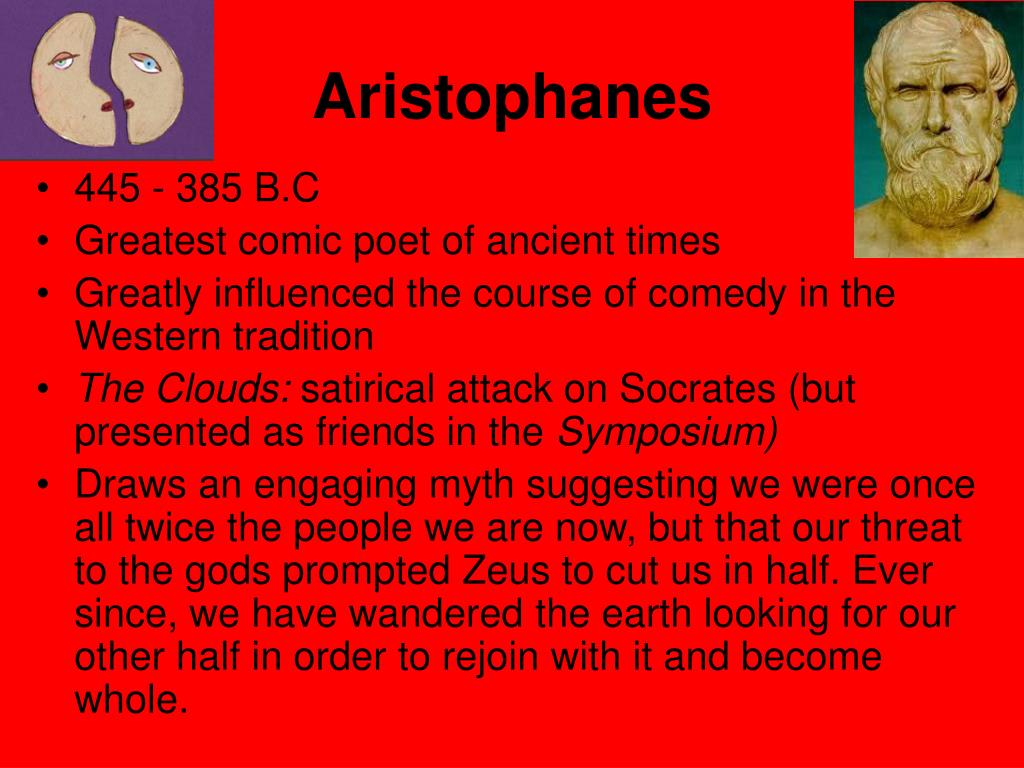
They became so aware of their strength that they fancied themselves capable of overthrowing the gods, so they set about scaling Mount Olympus, where the gods lived. They were very strong, and instead of running the way we do, they sort of rolled, or cartwheeled with their legs and arms all going very fast in the same direction, “head over heels”. The account in Plato’s Symposium goes more or less like this: originally humans did not look the way we look now instead, they had two faces (looking in different directions), four legs and four arms, and were shaped in a circular fashion. There is a parallel, up to a point, between the account of the origin of “humans” in Genesis and that of Plato’s character, Aristophanes, in the Symposium – in both cases it is shown that humans have been alienated (“wounded”) from their “original” nature (characterised by “wholeness”) and that there may, or may not, be a way to overcome that wounded state, even if only temporarily.

I was struck by another connection – that between Symposium and the story of Adam and Eve in Genesis, in the Christian Old Testament and the Jewish Torah.
I recently had occasion to return to Plato’s highly influential dialogue, Symposium, in relation to Sigmund Freud’s interpretation of it in his work.


 0 kommentar(er)
0 kommentar(er)
